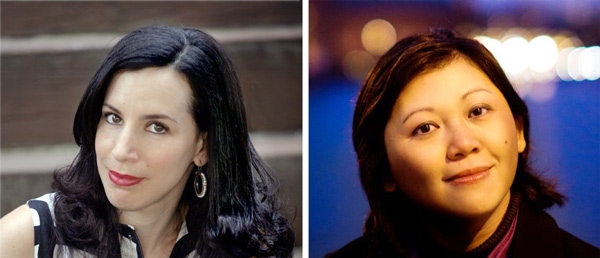In a new special issue, Guernica Magazine focuses on gray areas of freedom of expression. For several contributors, this led to discussion of self-censorship in China, and of the fierce arguments that followed Mo Yan’s 2012 Nobel Prize for Literature win. Emily Parker spoke with novelist Yiyun Li about the Zhu Ling poisoning case, “self-censorship in China, the line between fact and fiction, and whether it’s possible to create good art under a repressive regime”:
Emily Parker: Do you think a writer like Mo Yan, writing inside China, who has an elevated status with a lot of readers, has an obligation to take a political stand? That’s what many other people are criticizing him for: “By not taking a political stand, you are complicit.” Is that fair?
Yiyun Li: I don’t think writers have to take a political stand. I do think he made extremely unwise comments on many topics that he would have been better not to comment on. For instance, he made a case for the necessity of censorship in China with the example that he had to go through security at the Swedish airport (but not at the airport in China, as the original comment seemed to indicate). I don’t think any writer from any country should have an obligation to represent something other than literature, but to speak as he did, you could almost argue he did take a political stand, which is to collaborate with and defend the system.
[…] Emily Parker: [… C]an you write about China and stay out of politics? Is it possible to write about this country without taking a stand in some way?
Yiyun Li: You can write about a country without taking a stand, but you cannot write about a country without noting that there’s history, and that there’s politics going on. To me, that’s the same if you write about America. You don’t have to write about politics, but the politics have to be present in the characters. [Source]
Guernica also interviewed the author of the upcoming book “I am China,” Xiaolu Guo, about her frustration with the West’s fondness for Chinese dissident artists:
Guernica: In your essay on Mo Yan winning the Nobel Prize, you express some frustration that Western media pay more attention to “dissident” Chinese artists than “state artists.” Can you expand on that? Why do you think the West is more interested in dissidents?
Xiaolu Guo: For obvious reasons. But then again, I don’t think it’s the West’s fault. There is very little in-depth understanding in culture and arts between the West and China. Just think of the ending in E.M. Forster’s novel Passage to India, how he beautifully described the profound emotional conflict between the Indian man and the English man. But time moves on. We are on a better platform now I think, with lots of foreign culture introduced in the last few years. I do think there will be a better understanding between the two sides—East and West. And eventually, the so-called two sides will disappear, and there will only be the conflict between those with power and those without it.
Guernica: What are the obvious reasons that Western media pay more attention to dissident artists than state artists?
Xiaolu Guo: You have to ask this question to the sensationalist media and to your industry—not me. You’ll publish a politically famous Chinese artist like Ai Weiwei, but not someone like Liu Xiaodong or Yu Hong, although in my view they’re much greater artists than the ones you have heard of. This is understandable. How can you know anything about them if they aren’t coming to the surface of the Western media? You can’t even pronounce their names, or my name for that matter. I have no problem with this personally. It’s a social phenomenon. Before Liu Xiaobo received the Nobel Prize for Peace, had you ever heard of this person—this great poet? No. Isn’t that so clear? [Source]
In another Guernica interview, writer Pankaj Mishra urged readers to approach Mo Yan with an open mind:
I should say right away that at no point did I defend Mo Yan’s political positions, and that in fact made clear my own strong disagreement with them. What I objected to was the attempt to delegitimize his literary achievement through some selective reference to his political choices, like his refusal to sign a petition. If we were to take that narrow measure to many of the canonical figures of Western literature—from Dickens with his bloodthirsty writings during the Indian Mutiny, to Nabokov, who adored the war in Vietnam—those writers would have to be dismissed as worthless.
The other point that got lost in the rush to condemn Mo Yan was that we need a more complex understanding of writers working under authoritarian or repressive regimes. Something to replace this simpleminded, Cold War-ish equation in which the dissident in exile is seen as a bold figure, and those who choose to work with restrictions on their freedom are considered patsies for repressive governments. Let’s not forget that most writers in history have lived under nondemocratic regimes: Shakespeare, Tolstoy, and Goethe didn’t actually enjoy constitutionally guaranteed rights to freedom of speech. And let’s not forget also, alas, that freedom of speech doesn’t guarantee great literature. [Source]
This month Guernica also features 1989 Tiananmen Square student protest leader Hu Ping’s essay on freedom of speech, translated by Eric Abrahamsen with an introduction by Wuer Kaixi, as well as a feature by Emily Strasser on self-immolations in Tibet.








